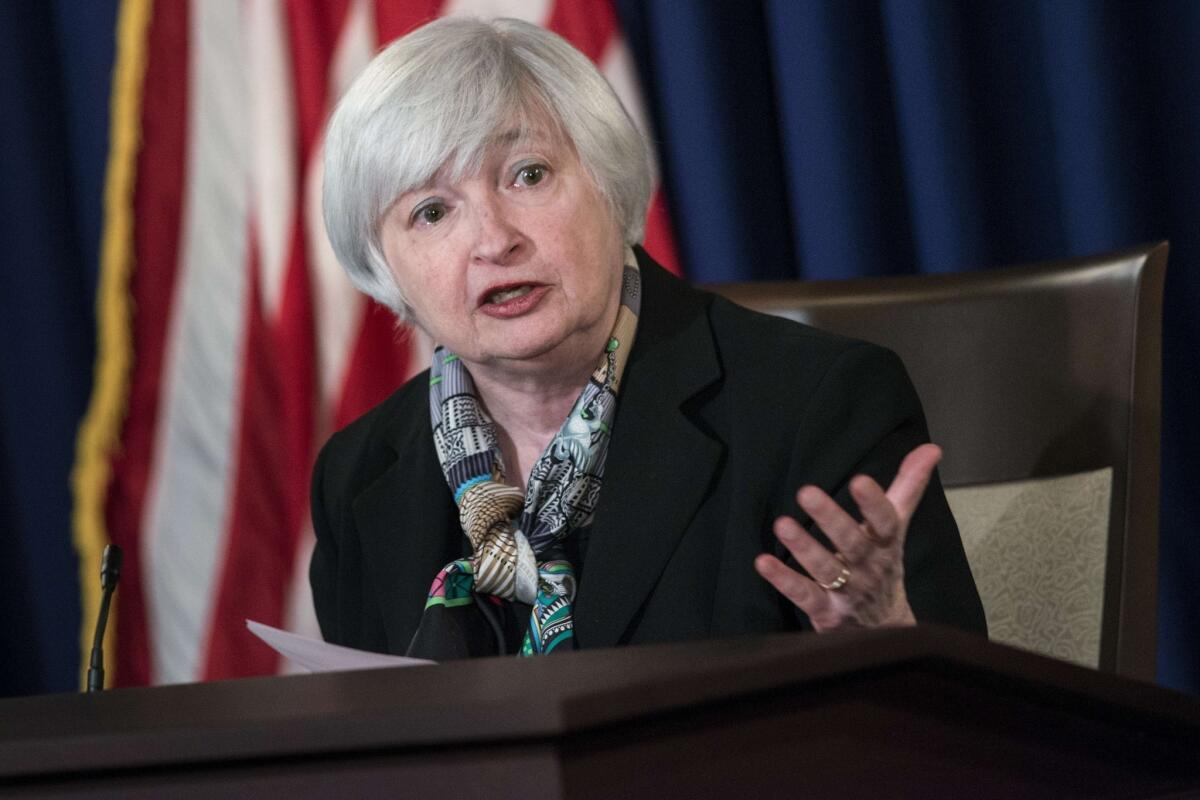Transparency at the Fed: What’s wrong with that?

- Share via
The Federal Reserve said again this week that it didn’t foresee raising short-term interest rates any time soon, although it did so in an official statement that was more vague than its previous pronouncements. Then new Fed Chairwoman Janet Yellen gave reporters a more precise answer: Depending on conditions, interest rates could go up as soon as early next year. Her remarks triggered a brief sell-off on Wall Street, prompting some critics to say Yellen had made a rookie mistake, trying to reassure investors but spooking them instead. But rather than Yellen being less forthcoming, we’d rather see the Fed continue to reveal more about its leaders’ thinking.
The Fed had been promising since late 2012 to try to keep short-term interest rates at 0% at least until unemployment dropped to 6.5%, a level it’s now approaching. On Wednesday, the Federal Open Markets Committee — the policy-setting arm of the Fed’s Board of Governors — blurred the picture, declaring that it would consider the progress toward full employment (roughly 4.5% to 5%), the pace of inflation and other factors before changing its interest-rate target. It also reiterated that its rate target is likely to stay at 0% for “a considerable time” after the Fed stops its extraordinary bond-buying program.
At a news conference afterward, Yellen offered more insight into the economic indicators she’d be tracking. But the one thing markets seized on was her statement that “a considerable time” could, under certain circumstances, mean “six months.” The Dow Jones industrial average dropped and interest rates on 10-year Treasury notes jumped; the former recovered Thursday, but the latter did not.
PHOTOS: From the Fed to GM, 5 top-tier women trying to fix man-made messes
Investors often overreact to comments by the Fed, which is one reason bank leaders before Ben Bernanke, Yellen’s predecessor, were so laughably opaque in their comments. Another reason is that they didn’t want to be boxed in by public expectations. But investors’ speculative parsing of vague Fed utterances can box in the bank too, which is why Bernanke’s efforts to increase transparency were so important. Although Yellen may not have anticipated the market’s reaction to her comments, she won’t help investors by being more circumspect in the future. It’s better for them to understand how the Fed thinks about the economy than it is for them to guess.
More to Read
A cure for the common opinion
Get thought-provoking perspectives with our weekly newsletter.
You may occasionally receive promotional content from the Los Angeles Times.






